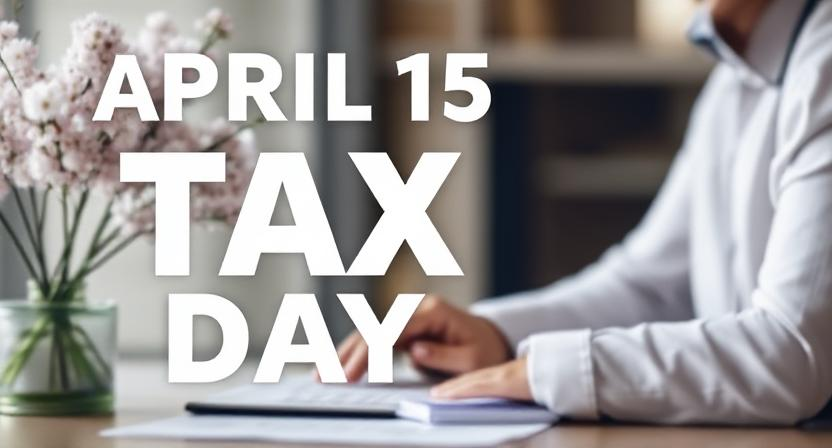April 15 Tax Day 2025 marks the official deadline for filing individual income tax returns with the IRS. Whether you’re expecting a refund or preparing to pay taxes owed, understanding the latest filing requirements, extension options, and penalties for late submissions is crucial. In this guide, we cover everything you need to know about April 15 Tax Day 2025—from what forms to file to how to avoid common mistakes that could delay your return or trigger fines.
Who Needs to File a Tax Return?
U.S. citizens and permanent residents who earn above a certain threshold are required to file a tax return. For the 2024 tax year, the filing requirements are based on factors such as filing status, age, and income. For example, single filers under 65 must file if their gross income exceeds $14,600. These thresholds are adjusted annually for inflation; therefore, it’s important to check the current IRS guidelines before filing.
Who Is Exempt from Filing?
Not everyone is required to file. In fact, individuals whose income falls below the standard deduction may be exempt. However, even if you’re not legally obligated to file, doing so can be beneficial. For example, you may be entitled to refundable credits or a tax refund due to tax withheld throughout the year. As a result, it’s often worth filing even if you fall below the income threshold.
Common Tax Forms
- Form 1040: The standard federal income tax form for individuals to report income.
- Form 1065: Partnerships to report income, deductions, and other relevant financial information.
- Form 1120: C corporations to report income, deductions, and other relevant financial information.
- Form 1120S: S corporations to report income, deductions, and other relevant financial information.
In summary, the correct form depends on your filing type and business structure.
Income Limits for Filing
Income limits vary depending on your filing status and age. For instance, in 2024, single filers under age 65 must file if their gross income exceeds $14,600. Because these limits adjust annually, it’s essential to verify the current figures when preparing your return.
Tax Rates and Brackets
The U.S. tax system is progressive, meaning your rate increases as your income rises. Below are the 2024 tax brackets for single filers:
- 10% on income up to $11,600
- 12% on income between $11,601 up to $47,150
- 22% on income between $47,151 up to $100,525
- 24% on income between $100,526 up to $191,950
- 32% on income between $191,951 up to $243,725
- 35% on income between $243,726 up to $609,350
- 37% on income over $609,350
Consequently, knowing your bracket helps you estimate your tax liability more accurately.
Standard vs. Itemized Deductions
Taxpayers can choose between the standard deduction and itemizing deductions:
- Standard Deduction: A fixed amount that reduces taxable income. For 2024, it’s $14,600 for single filers and $29,200 for married couples filing jointly.
- Itemized Deductions: These include medical expenses, mortgage interest, and charitable contributions. Therefore, itemizing may be beneficial if your eligible deductions exceed the standard amount.
However, itemizing only makes sense if your eligible deductions exceed the standard amount. In that case, itemizing may lower your taxable income more significantly.
Adjusted Gross Income (AGI) and Taxable Income
- AGI: Your total income minus specific adjustments.
- Taxable Income: AGI after subtracting deductions and exemptions.
As a result, your taxable income determines how much tax you owe based on your applicable bracket.
Tax Credits
Tax credits directly reduce tax liability and include:
- Earned Income Tax Credit (EITC): For low-to-moderate-income workers.
- Child Tax Credit: For taxpayers with qualifying dependent children.
- Education Credits: Such as the American Opportunity Credit for qualified education expenses.
Unlike deductions, tax credits lower your bill dollar for dollar—making them extremely valuable.
Tax Deadlines and Extensions
- April 15: Standard deadline to file individual tax returns.
- October 15: Extended deadline if a filing extension is granted. Note that extensions apply to filing, not to tax payments, which are due by April 15 to avoid penalties.
Keep in mind that filing an extension gives more time to submit paperwork—but not more time to pay any taxes due. Therefore, you must still pay by April 15 to avoid interest and penalties.
E-Filing and Tax Preparation
The IRS encourages e-filing for faster processing and quicker refunds. Various resources, including IRS Free File and Volunteer Income Tax Assistance (VITA), are available to assist taxpayers in preparing and filing returns accurately.
FAQs
What happens if I miss the April 15 deadline?
You may incur penalties and interest on unpaid taxes. However, filing an extension gives you until October 15 to file your return.
Can I file my taxes for free?
Yes, the IRS offers Free File for eligible taxpayers, and programs like VITA provide assistance to qualifying individuals.
How do I check the status of my tax refund?
Use the IRS’s “Where’s My Refund?” tool for real-time updates.
What should I do if I made a mistake on my tax return?
ou can file an amended return using Form 1040-X.
What are recent form 1040 updates?
Please refer https://usatrendalert.com/blog/key-updates-in-u-s-individual-income-tax-return-form-1040/ for more details.
